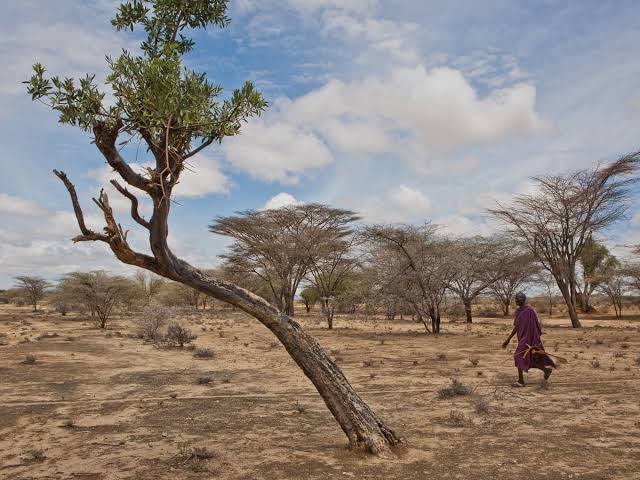Kenya’s agricultural lands are becoming dried out and barren as weather patterns change resulting into drought.
According to farmer Safari Mbuvi, it’s a devastating blow. He sank 50,000 Kenyan shillings in this season alone in planting.
“Since I was young, my father used to get a bounty harvest in this farm, but now, there seems to be a change in climate and the rains are no longer dependable,” he says.
“I will not harvest anything, not even a single sack of maize is possible. I have cultivated four or slightly above three acres and the expense I incurred is not recoverable. And I am not the only one. Every farmer in this area has lost everything.”
The plants have withered, the maize has turned to dry husks.
“Now I am left wondering, because we are still struggling to farm, the weather is continuously changing, we depend entirely on rainfall, and from the look of things this rain will no longer be reliable, now I don’t know what we shall do,” says Mbuvi.
Joe Mbalu, who is the Kenya Red Cross head of the Eastern region, says communities need to rethink how they farm.
“The issue of climate change from the experts and from what we have seen as a humanitarian organization, is that it is here with us. That this is going to happen. It is going to continue, maybe even become worse. So for us as communities, as farmers, as pastoralists, then we have to adapt and find out ways that will make us survive more. The old ways of doing things are not going to work. The old seasons that we know are not going to work. So we have to trust in science,” he said.
Climate change experts and humanitarian aid organizations are warning that Kenya may sink into the worst drought situation ever.
According to Famine Early Warning System Network (FEWS), more than 4 million people will be in need of sustained humanitarian food assistance in Kenya for the whole of 2022.
“But I can assure you that if the situation continues as it is, even as we go back now, as we expect the short rains assessments’ results to come out, I am 100 percent sure that my number of beneficiaries, people looking up and needing support will increase because of the situation as it is. Because they are not able to feed themselves. The same farms are not able to produce the same amount of food that they have been able to produce in the past,” he warned.
As the situation deteriorates, the little remaining food baskets will run dry and families which have been so resilient will also be exposed to famine.











